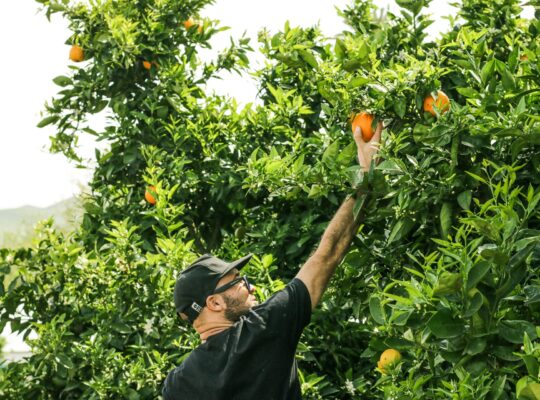African nations have joined forces under the Africa Palm Oil Initiative, promoting sustainable palm oil production, reducing deforestation, and encouraging reforestation efforts. As the initiative expands, it aims to address sustainability across other commodities in the region.
In recent sustainability news, African countries have made substantial strides in fostering sustainable palm oil production. By working together, these nations aim to combat deforestation and bolster reforestation initiatives. Six years ago, a group of African nations signed the Africa Palm Oil Initiative (APOI), focused on implementing appropriate government policies, developing local capacity, and engaging stakeholders involved in deforestation processes. As a result, new forestry laws have been enacted, permitting agricultural production solely on degraded land.
Palm oil is the most widely consumed, efficient, and versatile vegetable oil worldwide. However, it is a significant driver of deforestation. Currently, over 20 African countries grow oil palm across nearly 6 million hectares of land. In response to this challenge, the APOI has brought stakeholders together under national platforms and established regional guiding principles. These principles address deforestation, community rights, labor conditions, smallholder development, and biodiversity protection.
Open to investment in the palm oil sector, African countries now welcome only those investments that adhere to these principles. The APOI’s success can be largely attributed to its engagement with governments, which play a crucial role in determining and enforcing land protection policies. The initiative is also focused on collaborating with local communities and partnering with the private sector to enhance productivity.
Government policies and stakeholder engagement are essential components of the APOI’s strategy. Governments are responsible for identifying and enforcing land protection and management policies, ensuring that only degraded land is used for agricultural production. Moreover, the initiative emphasizes the importance of working closely with local communities, as their knowledge and understanding of the land and its resources are invaluable in addressing deforestation.
The APOI has been successful in creating a shared vision and united approach among African nations, promoting sustainable palm oil production that benefits local communities economically while protecting the environment. The initiative has set a precedent for other regions and industries to follow, demonstrating that collaboration and shared goals can lead to meaningful change.
As the APOI expands, it aims to address sustainability across other commodities, such as rubber and cocoa. The initiative is now transforming into the Africa Sustainable Commodities Initiative (ASCI), which will adopt a cross-commodity approach. This strategy will drive alignment and integration across all forest-risk commodities in the West Africa region, better positioning members to respond effectively to demand-side measures and attract foreign direct investment.
The ASCI will build on the work that the APOI has already accomplished, focusing on issues such as deforestation parameters and public-private partnerships. By extending its scope to include other forest products, the initiative aims to create a more comprehensive and holistic approach to sustainability in the region.
This cross-commodity approach offers several advantages. Firstly, it allows member countries to more effectively respond to demand-side measures, such as the European Union’s impending regulation to ban the import of any commodities linked to deforestation. Secondly, it helps build the case for government investment in addressing bottlenecks that impact the sustainability of all forest-based commodities, including transport and public health infrastructure.
The creation and expansion of the Africa Palm Oil Initiative and its transformation into the Africa Sustainable Commodities Initiative represent significant progress in promoting sustainability within the region. By uniting governments, local communities, and the private sector in their efforts to reduce deforestation and promote reforestation, these initiatives demonstrate the power of collaboration and shared goals. As the initiative continues to evolve, it has the potential to serve as a blueprint for other regions and industries seeking to adopt more sustainable practices.
Click here to view the original web page at: How African palm oil can boost livelihoods and protect forests










